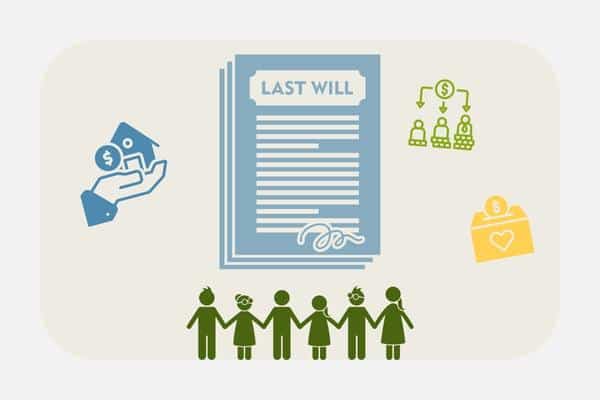Caring about the wellbeing of your children is important at any stage of parenthood and it should extend beyond your lifetime. If you have children, either younger or older, careful consideration of your estate planning documents is recommended. The decisions you make could easily have both short and long-term impacts on their lives.
We review key planning considerations at varying stages in a child’s life.
Young Children
If you have children under the age of 18, the most essential element of your estate planning documents is naming a guardian to care for your children. This should encompass naming a party to act during your lifetime if you are unable to care for your children, or upon your death. Naming a guardian avoids a court being forced to name a guardian on your behalf.
Selecting a guardian requires careful thought about your values, other children in the person’s household, proximity to family and friends, etc. It is recommended to name at least two guardians to ensure you have a back-up to care for your children. Advance discussion with whomever you choose is recommended to establish that the person is comfortable accepting the potential responsibility.
Another important consideration involves determining the level of assets your children will need for care until they graduate from high school, and possibly to fund college expenses. For most parents, this involves obtaining adequate life insurance to augment your accumulated savings.
Trusts for Children (of All Ages)
Whether you are creating documents for the benefit of your young or adult children, it is important to consider how assets ultimately transfer and at what ages, and what protections you want your children to receive long-term
Without creating a trust for the benefit of young children, assets would transfer outright to them upon reaching the age of 18. While every child is different, most 18-year-olds lack the financial responsibility and knowledge to receive an inheritance.
Trusts are frequently established to hold assets until later ages, allowing children to gain financial life experience and maturity. Trust assets can be used for your child’s benefit such as paying for college, supplementing living expenses, for a down payment on a home or other needs. Trusts might also begin paying income or making principal distributions to a child at prescribed ages.
While trusts are frequently drafted to hold assets to a specified age, we often recommend holding assets in Trust during the balance of your child’s lifetime as the trust can offer protection benefits, such as in the event of a divorce.
If you allow your children to hold assets in a Trust over the balance of their lifetime, you might elect to name a trustee to manage the trust until your child reaches a stated age. At that time, you could allow your child to act independently as Trustee, or perhaps in tandem with the original trustee as co-trustees until your child reaches a second stated age. This structure of allowing your child to become Trustee can give your child desired control in his or her life with added protection benefits. Alternatively, you might elect for a separate Trustee to act indefinitely on your child’s behalf, particularly if the Trust is intended to be removed from your child’s future estate.
Choosing a Trustee
Selecting an appropriate Trustee is an important decision. Whoever you name, they must be financially responsible and trustworthy. Ideally, they should understand your family values and wishes. You should also consider the relationship they have with your children relative to an ongoing relationship during adulthood.
If you have young children and are selecting a trustee, you can choose to place the named guardian or another person. If you do name someone other than the named guardian, consider if the guardian and trustee will be able to work together for the benefit of your child(ren).
Beneficiary Designations
It is important to recognize that assets with beneficiary designations pass directly to named individuals versus passing through your Will or Trust document. Therefore, if you wish for assets to be held in Trust for the benefit of your children or other individuals, it is important to embed proper language in your beneficiary designations to achieve this intended structure.
SageVest understands the importance of family as part of your finances and planning objectives. We frequently discuss appropriate estate planning for your children, as well as broader topics such as college funding and raising financially savvy kids. Please contact us to discuss your planning considerations in greater detail.




